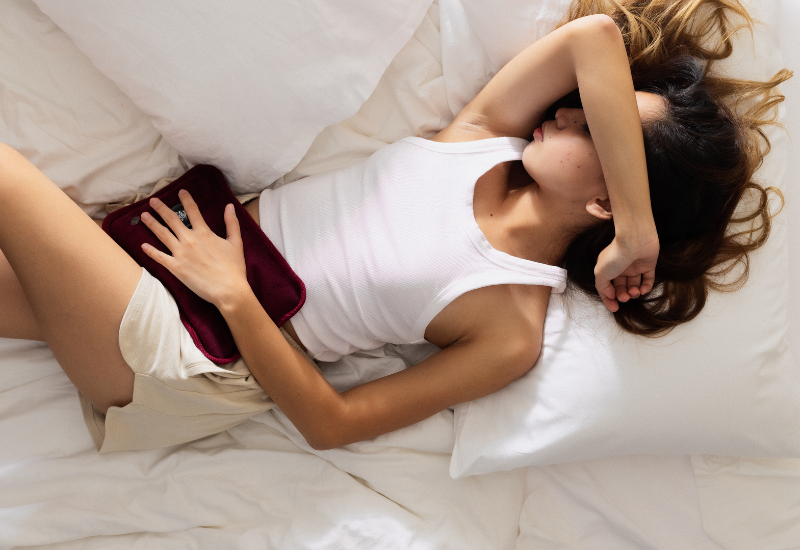

Understanding Menstrual Pain
Menstrual pain, commonly referred to as dysmenorrhea, affects millions of women worldwide. This discomfort is primarily caused by contractions in the uterus as it sheds its lining. In this blog, we will explore the reasons behind menstrual pain and provide effective natural remedies to alleviate cramps and discomfort.
Why Does Menstrual Pain Occur?
Menstrual pain is caused by the release of prostaglandins, which are hormone-like chemicals that cause uterine contractions. Prostaglandin levels that are too high might cause painful contractions. Other elements that may play a role include:
- Prostaglandins and Uterine Contractions: A collection of hormone-like chemicals known as prostaglandins is the primary cause of menstrual pain. These compounds are created naturally in the body and play an important part in a variety of biological processes, including inflammation and muscle contractions. Higher levels of prostaglandins are released during menstruation. As the uterus sheds its lining, this surge causes strong contractions. These contractions, while necessary for uterine lining removal, can be uncomfortable and painful.
- Hormonal Fluctuations: A delicate dance of hormones, mainly estrogen and progesterone, regulates the menstrual cycle. These hormone levels change in the days preceding menstruation. These hormonal changes can have an effect on the severity of menstrual cramps. Hormonal imbalances or abnormalities might cause more severe discomfort.
- Nutritional Factors: Adequate nutrition is essential for general health and also contributes to menstruation discomfort. According to some research, vitamin and mineral shortages, particularly magnesium, may contribute to increased cramp intensity. As a result, eating a well-balanced diet rich in key nutrients is critical for managing menstruation pain.
- Stress and Lifestyle Factors: Stress, both physical and mental, can have a substantial impact on the severity of menstrual pain. High-stress levels can cause increased muscle tension, making cramps feel worse. Furthermore, an unhealthy lifestyle, such as a lack of exercise or bad nutritional choices, might aggravate menstrual discomfort.
Natural Remedies for Menstrual Pain

- Yoga and Meditation: Engaging in gentle yoga poses and mindfulness meditation can help relax tense muscles and reduce stress levels.
- Dietary Adjustments: Incorporating anti-inflammatory foods like fatty fish, leafy greens, and berries, as well as avoiding excess caffeine and processed foods, can mitigate menstrual pain

- Herbal Teas: Menarche Me- -Time Menstrual Tea is a perfect blend of sun-dried natural chamomile flower, clitoria ternatea flower, lemongrass, and mint leaves rich in antioxidants and has anti-inflammatory properties. With the power of ancient remedy this blend has been crafted to ease cramps and promote relaxation, it offers a gentle, holistic approach to menstrual discomfort. Women using this also noticed recovery from PCOS and PCOD.
- Hot Compresses or Baths: Applying heat to the lower abdomen helps relax the muscles and alleviate pain.
Conclusion: Empowering Women with Natural Solutions
By understanding the causes of menstrual pain and adopting these natural remedies and cramp relaxants, women can take charge of their menstrual health. It’s important to remember that every individual is unique, and finding the right combination of remedies may require some experimentation. Embracing these natural approaches can lead to a more comfortable and empowering menstrual experience.

